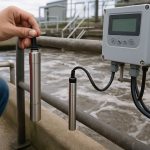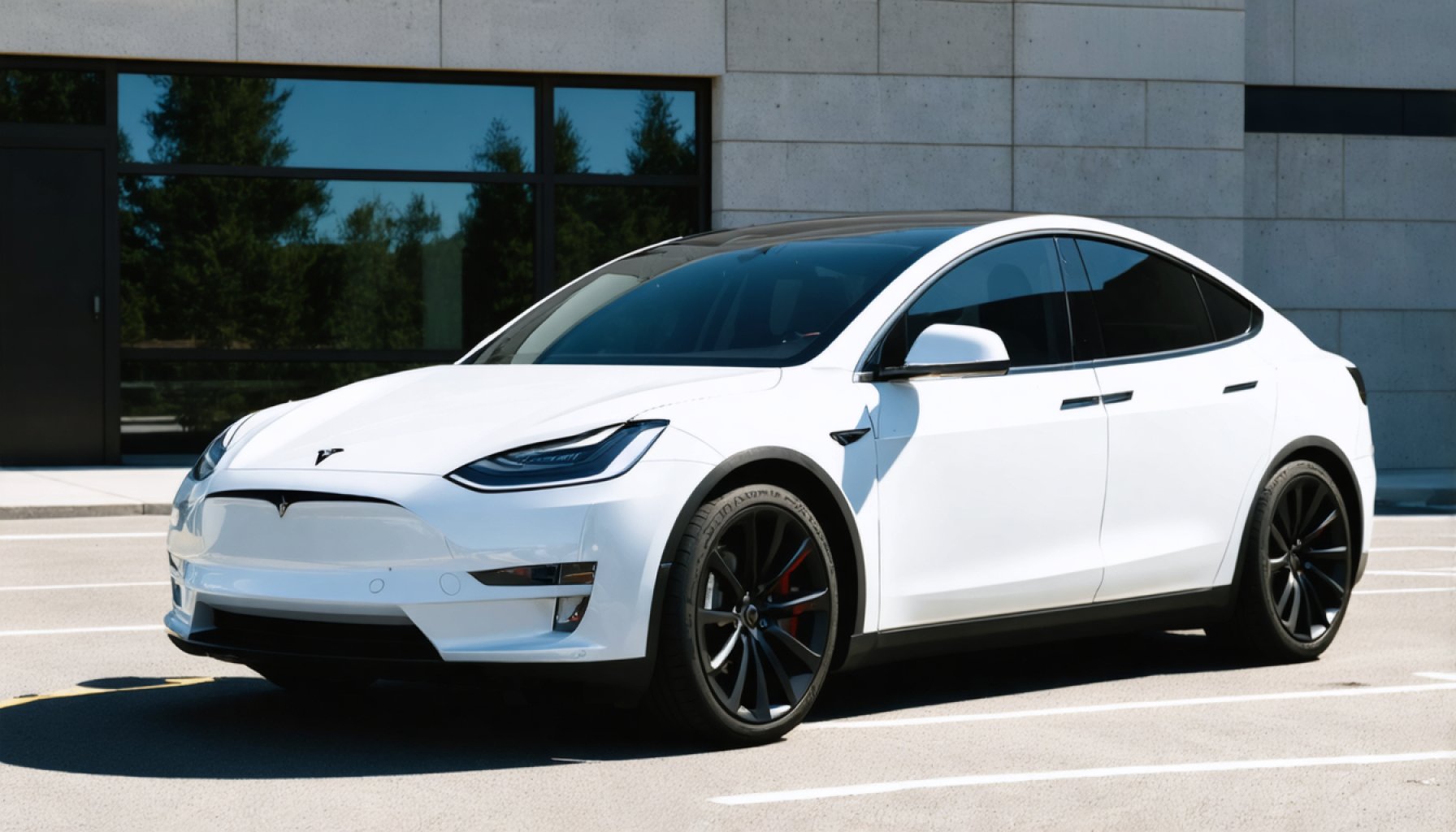- Washington state has introduced House Bill 2077, which taxes electric vehicle credits to address a budget deficit, primarily impacting Tesla.
- The bill enforces a 2% tax on sold EV credits and a 10% tax on banked credits starting in the 2024 model year, aiming to generate $78 million in 2025-2027.
- While supporters see the tax as a means to fund infrastructure and job creation, critics argue it could hinder EV adoption and innovation.
- Revenue is allocated with 70% for the general fund and the remainder for EV incentives and climate initiatives by 2027.
- The controversial bill faces scrutiny from Governor Bob Ferguson, whose review will determine its enactment and influence on Washington’s green policies.
- The legislation reflects the tension between economic goals and environmental objectives in advancing sustainable innovation.
On a recent afternoon in Washington state, where towering evergreens stand witness to the evolution of innovation, a significant legislative decision charted a new course for electric vehicles, leaving a prominent mark on Tesla. The state’s lawmakers, sharply divided along party lines, approved a groundbreaking bill seeking to tax electric vehicle credits, with Tesla squarely in its sights.
Emerging as House Bill 2077, this new tax arrives in an effort to plug a gaping multi-billion-dollar budget hole, as Democrats race to reconcile the fiscal discrepancies. At the heart of the matter are the EV credits — precious assets for automakers striving to meet ambitious zero-emissions goals set for 2035. With a late surge in legislative activity, this law targets companies banking or trading more than 25,000 credits annually, which, for now, includes only Tesla.
The stakes of this legislation stretch far and wide. Starting with the 2024 model year, automakers face a 2% tax on credits sold to others and a heftier 10% tax on those banked. Projections indicate that Washington could accrue $78 million in the 2025-2027 biennium, potentially doubling in subsequent years, fueling the $77.8 billion, two-year state budget.
There’s a looming debate about whether this measure benefits or hinders Washington’s clean energy transition. Proponents of the bill, including unions and advocacy groups for family interests, see a path to vital infrastructure development and job creation. They argue that by injecting funds into EV charging stations and climate initiatives, the bill accelerates the green technology wave rolling through Washington.
Yet, critics argue the “Tesla tax” undermines the incentives that drive significant EV adoption, possibly slowing innovation and dissuading automakers from prioritizing the state in their rollout plans. Detractors worry about setting a precedent that equates success with heavier penalties, a message they believe could ripple through the automotive sector.
The legislative brainchild of House Majority Leader Joe Fitzgibbon, the bill aims to channel 70% of garnered revenue into the general fund, while the rest would enrich the Electric Vehicle Incentive Account, gradually shifting to climate-related measures starting in 2027. As the policy swings between champions and critics, the broader implications for Washington’s green initiatives remain in question.
Governor Bob Ferguson holds the bill’s fate, yet his decision remains cloaked in careful consideration. In emphasizing a prudent approach, he has committed to a detailed review, with the future of Washington’s environmental and technological landscape hanging in the balance.
Amidst the policy wrangling, the broader and pressing narrative remains clear: The path to sustainable innovation demands balancing economic imperatives with environmental foresight. As Washington edges forward, the embodiment of these values will define the trajectory of its pioneering journey into a greener future.
Washington’s EV Tax Rule: How Will It Impact Tesla and the Green Transition?
Overview: What’s at Stake?
Washington state has recently passed House Bill 2077, introducing a new tax on electric vehicle (EV) credits aimed primarily at Tesla. This move seeks to address fiscal concerns by taxing automakers who bank or trade more than 25,000 EV credits annually.
The Broader Impact of House Bill 2077
1. Economic Implications:
– Revenue Generation: The bill is projected to generate $78 million in the 2025-2027 biennium, with potential to increase in later years. These funds are critical to fuel Washington’s $77.8 billion, two-year state budget.
– Allocation of Funds: Seventy percent of the revenue will be funneled into the general fund, while the remainder is allocated to the Electric Vehicle Incentive Account and climate-based initiatives starting in 2027.
2. Industry Trends and Predictions:
– Market Dynamics: Analysts predict that while this tax could strain relations with Tesla and similar automakers, it may still incentivize greater investment in local infrastructure, given Washington’s commitment to expanding EV charging points.
– Automotive Industry Response: The new tax may prompt automakers to reassess their credit strategies, potentially reducing their focus on Washington as a launch state for new EV models.
Criticism and Controversy
Critics argue that the “Tesla tax” might stifle innovation by penalizing automakers heavily dependent on EV credits. This apprehension poses the risk of setting a counterproductive precedent that could ripple through the EV market, making Washington less attractive for future automotive ventures.
Real-World Use Cases and Predictions
– Investment in Infrastructure: Despite the controversy, this legislation could accelerate the development of EV charging stations, which are crucial for supporting the growing number of electric vehicles on the road.
– Environmental Gains vs. Economic Strain: While a shift towards sustainable energy is encouraged, equating high performance with increased taxes might disincentivize companies, challenging future investment in the state’s clean energy projects.
Pressing Questions from Readers
Q: How does this tax affect individual consumers?
A: While the bill directly targets automakers, potential downstream effects could include higher EV costs for consumers as automakers might pass some of the tax burden to buyers.
Q: Will Tesla change its strategy in Washington?
A: Although no immediate changes have been announced by Tesla, the company may reassess its credit banking and trading strategy to minimize tax impact.
Q: How does this align with Washington’s climate goals?
A: The state aims to balance budgetary needs with climate goals by redirecting a portion of the tax revenue to green initiatives. However, the long-term effectiveness remains to be seen.
Actionable Recommendations for Readers
– Stay Informed: Keep an eye on regional news sources for updates on how this tax impacts local EV availability and pricing.
– Consider Alternative Energy Options: Diversifying energy investments and support could hedge against potential increased vehicle costs.
Conclusion
While Washington’s new legislative approach helps address immediate budget needs, careful monitoring is needed to ensure it aligns with long-term sustainability goals. The path to green innovation must juggle economic imperatives with environmental foresight.
For more on green energy policies and EV advancements, explore resources available on Washington State Department of Transportation.
 Blue Origin’s Bold Comeback: “Never Tell Me The Odds” Booster to Challenge SpaceX With August Launch
Blue Origin’s Bold Comeback: “Never Tell Me The Odds” Booster to Challenge SpaceX With August Launch  Billion-Euro Bet: UK Supercharges Global Race for Limitless Fusion Energy with Marvel Fusion Deal
Billion-Euro Bet: UK Supercharges Global Race for Limitless Fusion Energy with Marvel Fusion Deal  Dell’s Bold Move: New India Head, Surging AI Partnerships, and a Stock Price Rocketing 24%—What’s Next for This Tech Giant?
Dell’s Bold Move: New India Head, Surging AI Partnerships, and a Stock Price Rocketing 24%—What’s Next for This Tech Giant?  Lucid Group’s Bold Boardroom Shakeup: Is a Turnaround Finally Coming for This EV Underdog?
Lucid Group’s Bold Boardroom Shakeup: Is a Turnaround Finally Coming for This EV Underdog?  JWST’s Largest Cosmic Map Ever Stuns Astronomers: See Nearly 800,000 Ancient Galaxies in Unprecedented Detail
JWST’s Largest Cosmic Map Ever Stuns Astronomers: See Nearly 800,000 Ancient Galaxies in Unprecedented Detail  Russia’s Air Power Shaken: Shocking Satellite Images Reveal Scale of Ukraine’s Latest Drone Strike
Russia’s Air Power Shaken: Shocking Satellite Images Reveal Scale of Ukraine’s Latest Drone Strike  XRP Skyrockets: Wall Street and Asia Rush to Make Ripple Token the Next Big Treasury Asset
XRP Skyrockets: Wall Street and Asia Rush to Make Ripple Token the Next Big Treasury Asset  Spatial Transcriptomics Analysis Platforms Market 2025: Rapid AI Integration Drives 18% CAGR Through 2030
Spatial Transcriptomics Analysis Platforms Market 2025: Rapid AI Integration Drives 18% CAGR Through 2030  Wastewater Sensor Engineering Market 2025: Smart Monitoring Drives 8% CAGR Growth Through 2030
Wastewater Sensor Engineering Market 2025: Smart Monitoring Drives 8% CAGR Growth Through 2030 